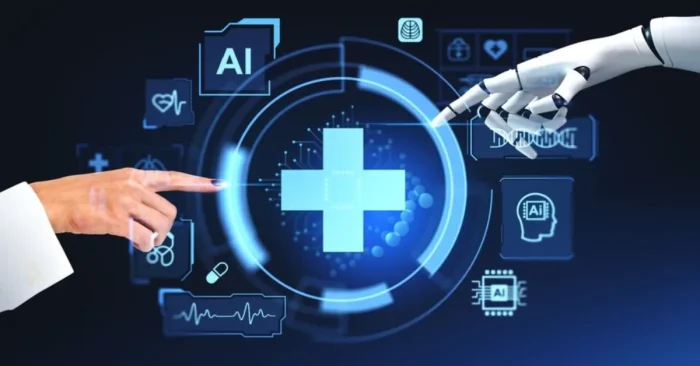Overview
AI tools for telemedicine are transforming the way healthcare is delivered by enabling remote consultations, diagnostics, and patient monitoring. These tools use artificial intelligence to analyze medical data, detect patterns, and provide real-time insights to doctors and patients. With features like symptom checkers, chatbots, and AI-powered diagnostic imaging, telemedicine becomes more accurate and efficient. Patients can access healthcare from home, reducing travel time and costs. AI also enhances decision-making for doctors, improves treatment plans, and ensures timely care. This makes healthcare more accessible, affordable, and personalized for people worldwide.
1. AI in Virtual Consultations
AI supports telemedicine platforms by enhancing video consultations. It helps doctors gather patient data, summarize symptoms, and provide more accurate recommendations during online visits.
2. AI Symptom Checkers
AI-powered symptom checkers analyze patient inputs and provide possible conditions. This helps patients understand health concerns before consulting a doctor and saves consultation time.
3. AI in Medical Imaging
AI tools analyze X-rays, CT scans, and MRIs remotely. Doctors can use these results during telemedicine appointments, ensuring accurate and timely diagnoses.
4. AI for Remote Patient Monitoring
AI-enabled devices track vitals like heart rate, blood pressure, and glucose levels. Data is sent to doctors in real time, improving chronic disease management.
5. AI Chatbots in Telemedicine
AI chatbots assist patients with scheduling, answering basic queries, and offering pre-consultation guidance. They make telemedicine platforms more accessible and user-friendly.
6. AI in Personalized Treatment Plans
AI analyzes patient history and lifestyle data to recommend personalized treatments. This ensures better healthcare outcomes through tailored telemedicine services.
7. AI for Predictive Healthcare
AI predicts potential health risks by studying patient records and real-time data. Telemedicine platforms use these insights to provide preventive care and reduce hospital visits.
8. AI in Mental Health Teletherapy
AI tools detect emotional patterns in speech and text during teletherapy sessions. This helps mental health professionals provide more effective and empathetic care remotely.
9. AI for Multilingual Support
AI-powered translation enables patients and doctors speaking different languages to communicate seamlessly. This makes telemedicine accessible to diverse populations worldwide.
10. AI in Data Security & Compliance
AI ensures patient data shared in telemedicine platforms is encrypted and secure. It also helps in maintaining compliance with healthcare regulations like HIPAA.
(FAQs)
Q1: Can AI replace doctors in telemedicine?
No, AI supports doctors by providing insights and efficiency, but human expertise remains essential in healthcare.
Q2: Is AI telemedicine safe for patient data?
Yes, AI platforms use encryption and security protocols to protect sensitive patient information.
Q3: Can telemedicine work in rural areas with AI?
Yes, AI-powered telemedicine can reach rural and underserved areas, offering healthcare access where hospitals may be limited.
Learn More About AI Course https://buhave.com/courses/learn/ai/






